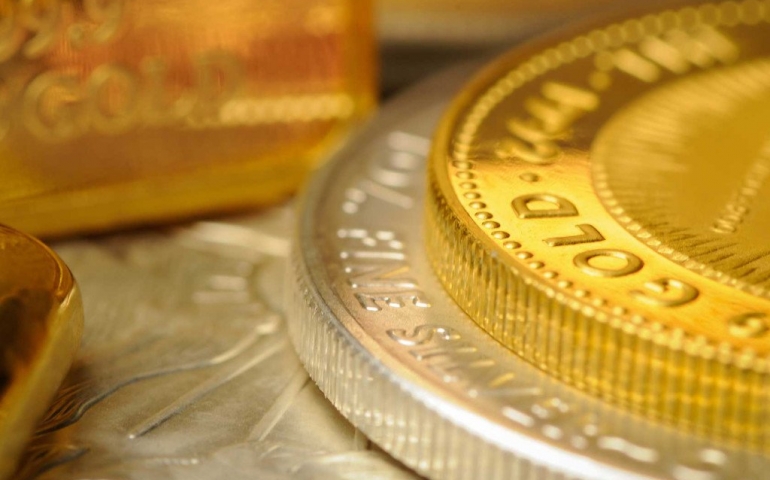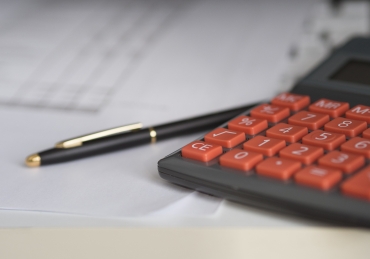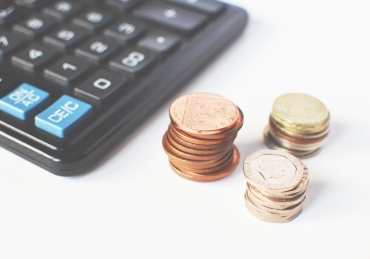Estate of ʿAbdurraḥmān ibn ʿAwf (may Allah be pleased with him) worth £700 million
Question
A ḥadīth states that when the companion ʿAbdurraḥman ibn ʿAwf (may Allah be pleased with him) passed away, one of his wives received 100,000 in inheritance. How much is this worth in today’s currency? Also, what does this imply about his total wealth?
بسم الله الرحمن الرحیم
Answer
ʿAbdurraḥman ibn ʿAwf (d. 32/652-3, may Allah be pleased with him) was a highly successful businessman. When he migrated to the blessed city of Madīnah, the Prophet ﷺ established brotherhood between him and Saʿd ibn al-Rabīʿ (d. 3/624, may Allah be pleased with him). Saʿd ibn al-Rabīʿ said to him, “The Anṣār know that I possess the most wealth from all of them, so I will divide my wealth into two parts between me and you, and I have two wives; see which of the two you like so that I may divorce her and you can marry her after she becomes lawful” (when her ʿIddat ends). However, he refused and instead went to the market place and started to trade in cheese and butter and thereafter also married.
Over time, his business expanded, and during his life he made substantial donations. For example, a ḥadīth in Musnad Aḥmad (24724, 25032) states that he sold a land belonging to him for 40,000 Dīnārs and distributed the proceeds to the poor and the wives of the Prophet ﷺ. Various views exist regarding the weight of a Dīnār as outlined in our detailed answer on Mahr Fāṭimī. If 4.25g is used which is the view of many Arab scholars, 40,000 Dīnārs is equivalent to 170,000 grams of gold. Today’s gold price is approximately £50 per gram, therefore, the value of 40,000 Dīnārs is £8.5 million. This is just one example of his charitable endeavours.
It was due to such charitable endeavours that ʿĀʾishah (d. 58/678, may Allah be pleased with her) would say to Abū Salamah (d. 94/712-3), the son of ʿAbdurraḥman ibn ʿAwf, “So, may Allah give your father drink from the spring of Paradise”. She would say this because he had provided financial support to the wives of the Prophet ﷺ and sold land worth 40,000 (Sunan al-Tirmidhī, 3749).
Another example is that he emancipated 30,000 households. Further examples of his generosity and charity can be read in his detailed biographical entry in Tārīkh Dimashq (35:235-308).
Returning to your question regarding his estate and inheritance, some narrations suggest that each of his four wives received 80,000 whilst other narration suggest 100,000 each. Most narrations do not mention whether this refers to Dīnārs (gold coins) or Dirhams (silver coins). However, the narration of Musnad Aḥmad mentions Dīnārs. This is how it appears in most manuscripts. On the other hand, one narration of Tārīkh Dimashq mentions Dirham. Ḥāfiẓ Ibn Ḥajar (d. 852/1449) does not make reference to either narration, however, he is inclined to the 100,000 being Dīnārs. This is obvious when considering the vast wealth of ʿAbdurraḥman ibn ʿAwf (may Allah be pleased with him) as reflected in his charitable endeavours. His Waṣiyyah (bequest) also suggests that this refers to Dīnār, as outlined shortly. Thus, the calculations below assume that the 80,000 or 100,000 refers to Dīnārs.
According to the laws of inheritance, the wives receive 1/8th of the deceased’s assets if there are children. The 80,000 or 100,000 was therefore 1/32 of his assets because he had four wives. Thus, the value of his assets that were subject to inheritance are as follows:
80,000 x 32 = 2,560,000 Dīnārs (10,880,000 grams gold, which is worth £544 million)
Or
100,000 x 32 – 3,200,000 Dīnārs (13,600,000 grams gold, which is worth £680 million)
This is based on the lower weight of a Dīnār, otherwise if higher calculations are taken such as 4.86g as is the view of Mufti Rashīd Aḥmad Ludyānwī (d. 1422/2002), the total would be worth £622 million and £777.6 million respectively.
What has been mentioned above is the amount that was subject to inheritance. This does not include the Waṣiyyah (bequest). We understand from the narrations that the bequest included:
- 50,000 Dīnārs for Jihād (212,500 grams gold, which is worth £10.625 million).
- 40,000 Dīnārs for 100 companions who participated in the battle of Badr (170,000 grams gold, which is worth £8.5 million).
This suggests that the 80,000 each wife received refers to Dīnār, not Dirham. This is because if it refers to Dirham, the total wealth that was subject to inheritance would have been 2,560,000 Dirhams (equivalent in his era to 256,000 Dīnārs). Both amounts in the bequest cumulatively (90,000 Dīnārs) exceed one third of this, and one third cannot be exceeded in bequests.
However, if each wife received 100,000 Dirhams, the total wealth that would have been subject to inheritance would have been 3,200,000 Dirhams, in which case the 90,000 Dīnārs does not exceed one third. However, it appears likely that he would have made a bequest for the wives of the Prophet ﷺ and for other causes, which indicates that 100,000 refers to Dīnār.
To conclude, 100,000 Dīnārs is worth £21.25 million. This indicates that the total assets subject to inheritance were worth £680 million. If the aforementioned bequests are added to this, the total is £699.125 million. It can therefore be safely concluded that in today’s terms, his assets were worth at least £700 million.
Note: It was mentioned in the detailed answer on Mahr Fāṭimī (p.19) that according to Mansour Zarra-Nezhad’s research in 2004, the purchasing power of one Dīnār can be estimated at between 32.5 to 36.5 US Dollars. Thus, the purchasing power of 3,290,000 Dīnārs is 113,505,000 US Dollars based on an average of 34.5. If inflation is considered then this is approximately 148,525,395 US Dollars as of June 2020. Thus, if the increase the in the value of gold is discounted and the purchasing power is considered, his assets at the time of his demise were worth at least £113 million.
عن أنس رضي الله عنه قال: قدم علينا عبد الرحمن بن عوف، وآخى رسول الله صلى الله عليه وسلم بينه وبين سعد بن الربيع، وكان كثير المال، فقال سعد: قد علمت الأنصار أني من أكثرها مالا، سأقسم مالي بيني وبينك شطرين، ولي امرأتان فانظر أعجبهما إليك فأطلقها، حتى إذا حلت تزوجتها، فقال عبد الرحمن: بارك الله لك في أهلك، فلم يرجع يومئذ حتى أفضل شيئا من سمن وأقط، فلم يلبث إلا يسيرا حتى جاء رسول الله صلى الله عليه وسلم وعليه وضر من صفرة، فقال له رسول الله صلى الله عليه وسلم: مهيم، قال: تزوجت امرأة من الأنصار، فقال: ما سقت إليها؟ قال: وزن نواة من ذهب، أو نواة من ذهب، فقال: أولم ولو بشاة، رواه البخاري (٣٧٨١)۔
وروى عبد الرزاق (١٠٤١٠) عن معمر، عن ثابت، عن أنس قال: لقي النبي صلى الله عليه وسلم عبد الرحمن بن عوف وبه وضر من خلوق، فقال له النبي صلى الله عليه وسلم: مهيم عبد الرحمن؟ قال: تزوجت امرأة من الأنصار. قال: كم أصدقتها؟، فقال: وزن نواة من ذهب، فقال له النبي صلى الله عليه وسلم: أولم ولو بشاة، قال أنس: فلقد رأيته قسم لكل امرأة من نسائه بعد موته مائة ألف، انتهى. ومن طريق عبد الرزاق رواه ابن حبان (٤٠٩٦) وأحمد (١٢٦٨٥) ومن طريقه ابن عساكر (٣٥/٣٠٣). قال الحافظ ابن حجر في الفتح (٩/٢٣٥): مات عن أربع نسوة، فيكون جميع تركته ثلاثة آلاف ألف ومائتي ألف، وهذا بالنسبة لتركة الزبير التي تقدم شرحها في فرض الخمس قليل جدا، فيحتمل أن تكون هذه دنانير وتلك دراهم، لأن كثرة مال عبد الرحمن مشهورة جدا، انتهى كلام ابن حجر۔
ويؤيده تصريح “مائة ألف دينار” في سياق أحمد (١٢٦٨٥)، كذا وقع في كثير من النسخ، وفي بعض النسخ لم يذكر دينار، والتفصيل في حاشية المسند طبعة المكنز (١٢٨٨٢)، ورواه ابن عساكر (٣٥/٣٠٣) من طريق أحمد بدونه، ورواه من طريق آخر وفيه تصريح درهم، ولكني أظنه من بعض الرواة، والله أعلم۔
وقال ابن سعد في الطبقات الكبرى (٣/١٠٠): ذكر وصية عبد الرحمن بن عوف وتركته، قال: أخبرنا محمد بن عمر قال: حدثني مخرمة بن بكير أنه سمع أبا الأسود يقول: أوصى عبد الرحمن بن عوف في السبيل بخمسين ألف دينار. قال: أخبرنا محمد بن عمر قال: أخبرنا أبو بكر بن عبد الله بن أبي سبرة عن محمد بن أبي حرملة عن عثمان بن الشريد قال: ترك عبد الرحمن بن عوف ألف بعير وثلاثة آلاف شاة بالبقيع ومائة فرس ترعى بالبقيع، وكان يزرع بالجرف على عشرين ناضحا، وكان يدخل قوت أهله من ذلك سنة. قال: أخبرنا عارم بن الفضل قال: أخبرنا حماد بن زيد عن أيوب عن محمد أن عبد الرحمن بن عوف توفي وكان فيما ترك ذهب قطع بالفؤوس حتى مجلت أيدي الرجال منه، وترك أربع نسوة فأخرجت امرأة ممن ثمنها بثمانين ألفا. قال: أخبرنا محمد بن عمر قال: أخبرنا أسامة بن زيد الليثي عن صالح بن إبراهيم بن عبد الرحمن بن عوف قال: أصاب تماضر بنت الأصبغ ربع الثمن فأخرجت بمائة ألف وهي إحدى الأربع. قال: أخبرنا الفضل بن دكين أبو نعيم قال: أخبرنا كامل أبو العلاء قال: سمعت أبا صالح قال: مات عبد الرحمن بن عوف وترك ثلاث نسوة فأصاب كل واحدة مما ترك ثمانون ألفا ثمانون ألفا، انتهى. وهذه الروايات رواها البلاذري في أنساب الأشراف (١٠/٣٨) من طريق ابن سعد۔
وقال ابن كثير في البداية والنهاية (١٠/٢٥٥): ولما حضرته الوفاة أوصى لكل رجل ممن بقي من أهل بدر بأربعمائة دينار وكانوا مائة، فأخذوها حتى عثمان وعلي. وقال علي: اذهب يا ابن عوف فقد أدركت صفوها، وسبقت رنقها. وأوصى لكل امرأة من أمهات المؤمنين بمبلغ كثير حتى كانت عائشة تقول: سقاه الله من السلسبيل. وأعتق خلقا من مماليكه، ثم ترك بعد ذلك كله مالا جزيلا، من ذلك ذهب قطع بالفئوس حتى مجلت أيدي الرجال، وترك ألف بعير ومائة فرس، وثلاثة آلاف شاة ترعى بالبقيع، وكان نساؤه أربعا، فصولحت إحداهن من ربع الثمن بثمانين ألفا، انتهى كلام ابن كثير۔
ووصيته لأهل بدر أسندها ابن عساكر في تاريخه (٣٥/٣٠٠)۔
وأما جوده وصدقته في حياته فروت أم بكر بنت المسور أن عبد الرحمن بن عوف باع أرضا له من عثمان بن عفان بأربعين ألف دينار، فقسم في فقراء بني زهرة وفي ذي الحاجة من الناس، وفي أمهات المؤمنين، الحديث، رواه أحمد (٢٥٠٣٢ و ٢٤٧٢٤)، وهو حديث حسن. وفي الباب ما روى الترمذي (٣٧٤٩) عن عائشة أن رسول الله صلى الله عليه وسلم كان يقول: إن أمركن لمما يهمني بعدي، ولن يصبر عليكن إلا الصابرون. قال: ثم تقول عائشة، فسقى الله أباك من سلسبيل الجنة، تريد عبد الرحمن بن عوف، وقد كان وصل أزواج النبي صلى الله عليه وسلم بمال، يقال: بيعت بأربعين ألفا. قال الترمذي: هذا حديث حسن غريب، انتهى. وصححه ابن حبان (٦٩٩٥)۔
وروى الحاكم (٥٣٥٩) من طريق قريش بن أنس عن محمد بن عمرو عن أبي سلمة بن عبد الرحمن بن عوف عن أبي هريرة رفعه: خيركم خيركم لأهلي من بعدي. قال قريش: فحدثني محمد بن عمرو عن أبي سلمة بن عبد الرحمن أن أباه وصى لأمهات المؤمنين بحديقة بيعت بعده بأربعين ألف دينار. صححه الحاكم على شرط مسلم وأقره الذهبي۔
وروى ابن المبارك في الزهد والرقائق (٥٢٠) عن معمر، عن الزهري قال: تصدق عبد الرحمن بن عوف على عهد رسول الله صلى الله عليه وسلم بشطر ماله أربعة آلاف، ثم تصدق بأربعين ألفا، ثم تصدق بأربعين ألفا، ثم تصدق بأربعين ألف دينار، ثم حمل على خمسمائة فرس في سبيل الله، ثم على ألف وخمس مائة راحلة في سبيل الله، وكان عامة ماله من التجارة، انتهى. ومن طريقه رواه الطبراني في الكبير (٢٦٥) وأبو نعيم في الحلية (١/٩٩) وأبو نعيم في معرفة الصحابة (١/١٢٣) وابن عساكر (٣٥/٢٦٣)۔
وقال جعفر بن برقان: بلغني أن عبد الرحمن بن عوف أعتق ثلاثين ألف بيت، رواه الحاكم (٥٣٤٨) وأبو نعيم في الحلية (١/٩٩) وابن عساكر في تاريخ دمشق (٣٥/٢٩٣)۔
Allah knows best
Yusuf Shabbir
17 Dhū al-Ḥijjah 1441 / 7 August 2020
Approved by: Mufti Shabbir Ahmed and Mufti Muhammad Tahir




Mahr Fatimi or Mahr Azwaj